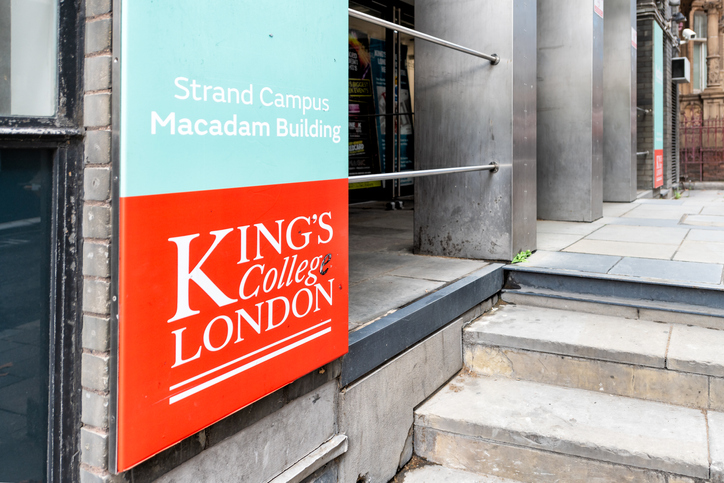Personalised Genomics in the UK
Category: Uncategorized
Last November, we reported that Project Sapiens had declared a £6m seed funding round, at a valuation of over £10m. This young company was using machine learning to analyse sequences of your DNA and the DNA of your gut microbiome, before providing tailored nutritional advice based on your personal genomics. Just a month after we reported on this funding round, Project Sapiens raised another £15m, with company filings indicating they achieved a valuation of over £30m.
Shortly after this sizeable round, Project Sapiens underwent a pivot, rebranding to ZOE, with a new coral-coloured logo. The company now seems to have shifted away from their original business model, and is now running several studies aimed at understanding why even identical twins (who share the exact same genetic material) react to foods in different ways.

What they are now focussing on is a rapidly growing part of nutrition science: gut microbiomes. In other words, the ecosystem of bacteria that live in your gut (each human’s intestine contains over 1,000 species of bacteria). ZOE’s latest study is using DNA testing technology to assess gut microbiota diversity (a proxy for the ecosystem’s health). This will be combined with analyses of nutrient levels in the blood of patients after exposure to different foods, to assess whether there is a correlation between a healthy reaction and a diverse gut biota.
If all goes according to plan, the startup plans to make tailored dietary advice based on the genome of a specific person’s gut microbiota.

To date, ZOE’s funding round is one of the largest secured by a British “personalised genomics” company. Personalised genomics refers the system of coding all or part of a customer’s DNA sequence, and offering them tailored health and lifestyle advice accordingly. The sector is seeing a new cohort of enterprises capitalising on the huge reductions in genome sequencing costs over the last 20 years.
The industry can roughly be split into three sequencing subsectors: genomic sequencing technology, medical genomics, and consumer genomics. The sequencing subsector is where the actual technology used to sequence DNA is developed – these companies are helping to drive the cost of genome sequencing down, making the personalised genomic service more accessible to everyone. The medical subsector is where the genomic data is analysed for use by medical professionals, whilst the consumer subsector provides for consumer focussed services, such as genealogical, or lifestyle/nutrition information.
Others, such as genomes.io, are offering a completely different kind of service.
Sequencing Technology

oxford nanopore technologies
Oxford Nanopore was one of the first UK startups to reach a $1b valuation. Incorporated back in 2005, the company has developed the world’s first nanopore DNA sequencer, which works by pulling DNA through hundreds of nanoscopic pores, and measuring the electrical signal produced by each block of DNA. Their kit is small, portable, and cheap (around £800) making DNA analyses available to laboratories with small budgets, and even remote researchers, such as doctors seeking to identify ebola.
Whilst this company isn’t developing these kits specifically for the personalised genomics market, some customers are using it for this purpose. As this technology develops, and they continue to drive costs down, their technology could help make human genomic analyses much cheaper for research labs and the general public, making personalised genomics more accessible.
Medical Genomics


lifebit
Congenica
Lifebit is a fascinating young company that operates in the intersection between machine learning and genomics research. Whilst companies such as Oxford Nanopore Technology are making sequencing DNA easier and cheaper, the sequenced data is highly complex, and requires considerable expertise and computational power to produce actionable insights. Lifebit is attempting to solve this by developing a cloud-based SaaS package, with machine learning capabilities that can help researchers analyse large-scale DNA data. In their own words, they want to create software that can “reason about DNA data like humans do.”
Clearly this has important use cases in improving the ease and power of personalised medicine. Though Lifebit is just two years old, it has already raised a $3m seed round, backed by four early stage venture capital funds, including AngelList and Pentech Ventures.

Similarly, Congenica develops software “for the analysis of complex genomic data”, improving diagnosis time for genetic diseases. In one case study, they identified a single gene variant on the child’s NEXMIF gene that was causing epilepsy in an infant. Previous medical tests had been unable to solve the case. Congenica’s platform was also able to determine that the variant arose de-novo. In other words, the variant arose via a mutation in the child’s genome itself, not the parents’. Therefore, Congenica could confirm there was a very low risk any further children from the couple would have the condition.
Consumer Personalised Genomics




atlas biomed
ome
dnanudge
ZOe
Atlas Biomed, OME and DNAnudge all offer similar services to ZOE. Atlas Biomed, for example, offers a broader service: sequencing either or both your DNA and your gut biota. Their marketing claims that from your DNA they can assess your risk profile for 19 multifactorial diseases (i.e. diseases associated with numerous genes), alongside identifying gene variants associated with 322 hereditary diseases (like cystic fibrosis). They also offer a range of exciting, but perhaps hard to verify, genomic services, including ancestry makeup (including presence of Neanderthal genes), and genes associated with different personal traits.
DNAnudge, on the other, sequences your genome and then provides a range of devices designed to help “nudge” you in the direction. This includes the DnaBand, a wearable wristband that can scan food product barcodes, telling you if they suit your specific genetic data.
Consumer Personalised Genomics

genomes.io
Genomes.io is perhaps the most exciting company in the UK’s genomics sector. Essentially, this company utilises blockchain to allow users to commodify their genomic data. With the rise of personal genomic kits from the likes of Atlas Biomed and 23andMe (the market leader in DNA/ancestry kits), sequencing all or key parts of your genome has become commonplace.
However, once they’ve coded your DNA, you lose control of it, and the testing company can legally sell the data to third parties looking to perform genomic research. For instance, last year 23andMe sold a $300m stake to pharmaceutical giant GSK, effectively handing over their genome database for use in drug development.
Like your Google and Facebook data, your genomic data is valuable, and will only increase in value as genetic data becomes increasingly used in medicine and drug development. Genomes.io want to place that data back into your hands. Once they have sequenced your genome and stored it in their online platform, you can then agree to sell it to whichever buyer you like, with records maintained permanently via blockchain.
Discover the UK's most innovative companies.
Get access to unrivalled data on all the businesses you need to know about, so you can approach the right leads, at the right time.
Book a 40 minute demo to see all the key features of the Beauhurst platform, plus the depth and breadth of data available.
An associate will work with you to build a sophisticated search, returning a dynamic list of organisations matching your ideal client.